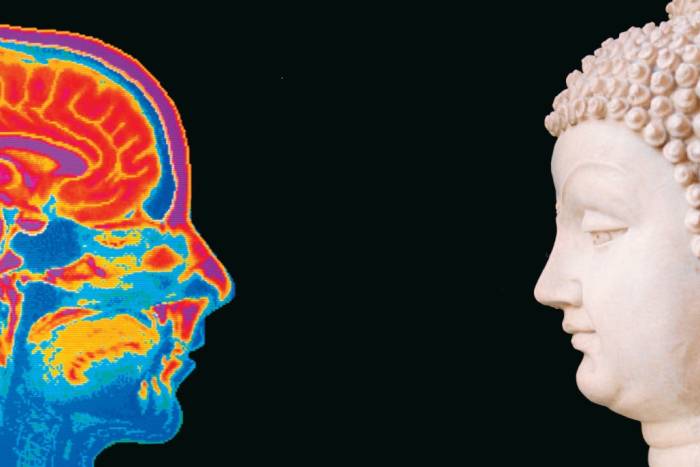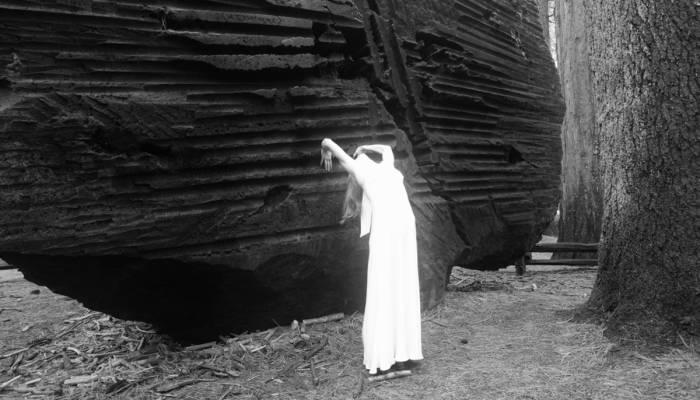Science Discovers, Finally, That Breathing Is an Essential Instrument for Dealing With Reality
Indian tradition has spoken of the power of breathing for millennia; today, science is backing it up.
After a very long side route, science has finally arrived at the conclusion Indian tradition reached more than two thousand years ago: breathing decisively affects the body and the mind. Well beyond the mechanical transformation of oxygen into carbon dioxide, scientists have now confirmed that to achieve homeostasis – an organism’s balance – the brain relies on stimulation from breathing.
Researchers at Northwestern University’s Feinberg School of Medicine have discovered, among other things, that the cognitive functions of the body and mind work much better when we inhale through the nose rather than through the mouth. Further, deep breathing exercises improve the memory and help us to make better decisions. “When you inhale, you’re somehow synchronizing the cerebral oscillations that occur throughout the limbic network,” they explain.
By breathing restlessly, adrenaline is released. This sends signals to the brain that allow us to act faster and to make better decisions. This is because the hippocampus, responsible for memory, the amygdala, the emotional center, and the piriform cortex, are all affected by breathing.
George Gurdjieff once warned, “If you haven’t learned to breathe, you haven’t learned anything.” The Armenian mystic also noted that virtually all cultures have been curious about the physical and chemical processes of breathing, relating them immediately to life. The Latin word for breathing is spiritu, which also translates as breath. The Old Testament relates that God created humankind by breathing into Adam. And the Chinese, after noting that turtles breathed slowly and lived many years, began to pursue breathing with great interest, and this formed the basis of Qi Gong.
In contrast to Western philosophy, Eastern thinkers considered breathing as one of the pillars of existence. In Indian thought, it’s suggested in the dialogues of the Upanishads (8th century BCE), that a substantial change in the subject-object relationship might be registered through breathing. Indian thought puts a greater emphasis on the subject, that is, in the intimate and intangible, and not on describing the visible world.
The problem that thus occupied Indian thinkers from then on was of detonating a kind of soul transformation. Humankind began a sojourn within, to inspire divinity, and to unfold in the direction of self-knowledge. All of this was from meditation, control of the breathing, and the rather severe psychological discipline of yoga.
The current scientific inquiries confirm what Indian thought always insisted upon in regard to respiration. And from here, we can draw some lessons. First of all, we must learn to breathe. This is something we’ve not known how to do for a long time. We can also help to reinvent philosophical traditions with science, drawing from them valuable contributions to put into practice and to live better.
Related Articles
When ancient rituals became religion
The emergence of religions irreversibly changed the history of humanity. It’s therefore essential to ask when and how did ancient peoples’ rituals become organized systems of thought, each with their
Larung Gar, the valley that is home to thousands of Buddhist monks
If we think about the monastic life it is very probable that we think about solitude, seclusion, silence and a few other qualities whose common denominator is the appropriate isolation for mediation
Dialogue with the Dalai Lama on science and spirituality
The Dalai Lama has been interested in science since he was a child. Over the years he’s visited many laboratories and has attended conferences that discuss consciousness from the scientific point of
A New Year's resolution for the earth
Worrisome quantities of waste are generated by human populations. Especially in cities, these have reached unprecedented and alarming levels. A largely uncontrolled practice, it affects everything on
The Dark Mountain Project: or how literature can confront ecocide
One impulse from a vernal wood May teach you more of man, Of moral evil and of good, Than all the sages can. Wordsworth, “The Tables Turned” (fragment) Words are elementary. The only reason we can
Are there no women in the history of philosophy?
Do only men philosophize? This could sound like a silly question, but if we quickly review the names of philosophers, from Aristotle to Slavoj Žižek, it would appear to be an exercise that is
Things that are about to disappear: photography as environmental conservation
Cristina Mittermeier is the founder of the International League of Conservationist Photography (iLCP), and is at the front of a modern movement to use photography with environmental purposes. Her work
Architecture And Music; An Affair That Acts On The Matter
A composition is like a house you can walk around in. — John Cage Perhaps music, more than the art of sound, is the art of time. That’s why its communion with space, and architecture, is so often so
Psycho-geography (On The Ritual Casting of a City)
Mrs. Dalloway walked down the streets of London guided by an “internal tide” that made her stop somewhere, enter a store, turn at the corner and continue her journey, as if she were adrift. La dérive
A Theme Park Inspired by Hayao Miyazaki is About to Open …
One of animation’s most spectacular exponents, Hayao Miyazaki, is the artist who transformed the direction of traditional animation forever.










